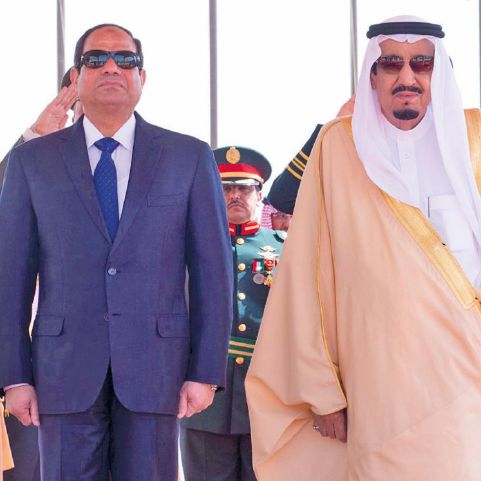Is a nuclear Saudi Arabia inevitable if Iran acquires the bomb?
Monday, 15 June 2015
Salman Al-Ansari/Al Arabiya
There are many speculations about the nature of the changes that will take place in the Middle East with all its complexities and challenges. In addition to the questions surrounding the conflicts in Syria, Iraq, Yemen, Libya, and the self-proclaimed Islamic State, (ISIS) there is one question that should be brought to the forefront as it will undoubtedly change the face of the whole region as we know it: Will Iran develop a nuclear weapon? This of course begs other questions. If Iran does so, would the P5+1 deal truly be able to stop Tehran from mobilization? Would the international community accept the very probable consequence that other regional actors might also acquire such weapons in order to balance power? What positive and negative outcomes should be expected from these changing factors?
It is important to mention that I believe the current U.S. Administration has dangerously misunderstood the psychological nature of the Iranian regime. Obama’s strategy is to bank on Iranian moderates—most of whom do not even come close to equaling the Supreme Leader’s power and influence. It should also be noted that these leaders who have been identified as moderates have demonstrated imperialist aspirations in the past and in the present – by way of Tehran’s military proxies seen in the form of Hezbollah, Houthis, and other Shiite militias present in the region.
It’s not that simple, Obama
Obama appears to believe that once the sanctions are lifted and Tehran is able to reap the benefits of U.S. dollars, the Iranians will change their inherited attitude fueled by regime propaganda and nuclear ambitions. Unfortunately, it’s not that simple. I believe the Iranian political fabric is revolutionary-oriented. For the current regime, a healthy economy giving way to national prosperity appears to be of very little interest. I believe it’s safe to say that any income generated is almost always dedicated to the spread of the ideology of the Islamic Revolution.
If Iran is ever close to acquiring nuclear weapons then we should not be shocked to see many countries in the Middle East equipped with such weapons. The threat of a new nuclear arms race in the Middle East is troubling for the entire world, not to mention countries within the region. As such, it will be difficult to stop Saudi Arabia and other GCC countries from acquiring the same weapons and military power as the Iranian regime. Some analysts believe that if Iran and Saudi Arabia were to both acquire nuclear weapons, in the long run there would be no serious threat of war in the Middle East because of potential Mutually Assured Destruction pacts coming into effect.
Looking at the examples of India and Pakistan, as well as the United States and Russia, such a viewpoint is both right and wrong. Because both countries in such a situation would only in very unlikely circumstances consider direct invasion or acts of war against each other. They would also most probably opt for taking their battles to remote locations, where smaller or weaker countries will become targets. Iran is seemingly working day and night to establish, fund, train, and arm any militia in the Arab world just for the sake of gaining imperial powers and regional hegemony. Surprisingly, these wishes have been stated publicly by the Iranian regime on several occasions. The latest being when one Iranian official reportedly said that Iran is proud to have control over four major Arab capitals: Sana’a, Baghdad, Damascus and Beirut. The Iranian president’s consultant Ali Younisi has also said that Baghdad will be the new Persian Empire’s capital, although he later clarified the statement.
I believe that June 30 nuclear talks deadline will go down in history as one of the riskiest times for global security because of conflict over armaments could be set in motion on an official front.
I believe Saudi Arabia is committed to a Middle East free of nuclear weapons, but if Iran is going to acquire the bomb or at least be on the threshold of having it, then Saudi Arabia may perhaps bypass the hassle of enriching uranium by reaching out to its allies that are already armed, even in the event of a failed alliance with the U.S.
If Iran is ever close to acquiring nuclear weapons then we should not be shocked to see many countries in the Middle East equipped with such weapons. To quote Albert Einstein, “intelligent people solve problems, geniuses prevent them,” I’m afraid the Obama administration’s strategy with Iran will neither solve nor prevent problems, but will actually cause more.But while I am not optimistic about the current direction of U.S. policy in the Middle East, I do hope other factions in America’s political fabric will attempt to combat a deal that can threaten global security.






















